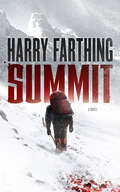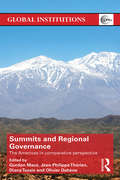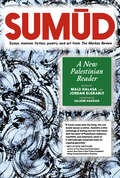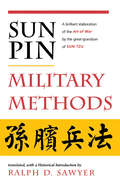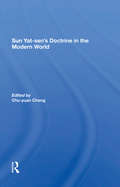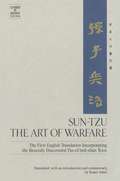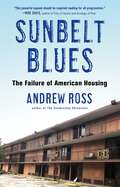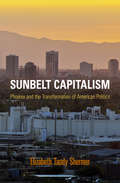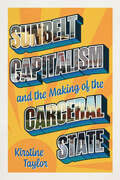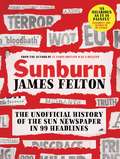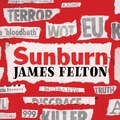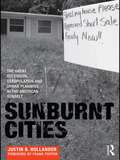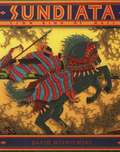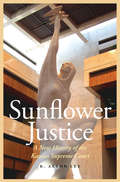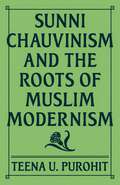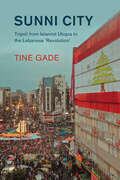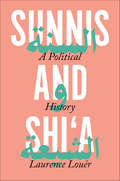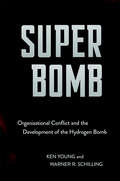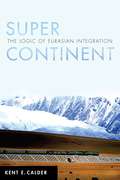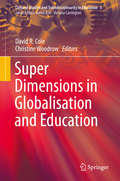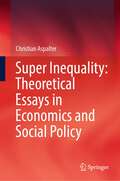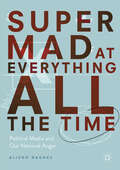- Table View
- List View
Summit: A Novel
by Harry Farthing"Magnificent! A compelling, fast-paced novelthat reveals a rarely seen dark side of Everest. A must-read!" - James W. Huston, New York Times bestselling author of The Blood FlagThe view from 8,848 meters isn't always clear. Even after eight successful summits, Mount Everest guide Neil Quinn can't handle anything the mountain throws his way. Disaster strikes steps from the top, leaving him with a very old swastika-embellished ice axe that should never have been so high on the mountain - not if Everest's meticulously documented history is accurate.Danger doesn't stop at the descent.When he heads back to Europe, blackballed and alone, he struggles to discover the truth about this lost relic. Quinn's investigations soon have neo-Nazis, assassins, and history buffs vying to take possession of the axe'proof of Nazi alpine superiority, and strong evidence that a German climber was the first to summit Mount Everest.Beautifully written and meticulously researched, Summit follows two climbers across two continents as their stories intertwine across history, culminating in one final push for the top of the world."Gripping...Farthing vividly depicts the challenges of mountain climbing." - Publishers Weekly
Summits & Regional Governance: The Americas in Comparative Perspective (Global Institutions)
by Diana Tussie Gordon Mace Jean-Philippe Therien Olivier DabèneDespite the large number of regional and global summits there is very little known about the functioning and impact of this particular type of diplomatic practice. While recognizing that the growing importance of summits is a universal phenomenon, this volume takes advantage of the richness of the Americas experiment to offer a theoretically grounded comparative analysis of contemporary summitry. The book addresses questions such as: How effective have summits been ? How have civil society and other non-state actors been involved in summits? How have summits impacted on the management of regional affairs? Filling a significant void in the literature, this volume offers an original contribution helping to understand how summitry has become a central feature of world politics. It will be of great interest to students and scholars of diplomacy, international organizations, and global/regional governance.
Sumud: A New Palestinian Reader
by Malu Halasa Jordan ElgrablyAn anthology that celebrates the power of culture in Palestinian resistance, with selections of memoir, short stories, essays, book reviews, personal narrative, poetry, and art.Includes twenty-five black-and-white illustrations by Palestinian artists.The Arabic word sumūd is often loosely translated as &“steadfastness&” or &“standing fast.&” It is, above all, a Palestinian cultural value of everyday perseverance in the face of Israeli occupation. Sumūd is both a personal and collective commitment; people determine their own lives, despite the environment of constant oppressions imposed upon them. This anthology spans the 20th and 21st centuries of Palestinian cultural history, and highlights writing from 2021–2024. The collection of writing and art features work from forty-six contributors including:Dispatches from Hossam Madhoun, co-founder of Gaza's Theatre for Everybody, as he survives the post-October 2023 war on Gaza;Novelist Ahmed Masoud with &“Application 39,&” a sci-fi short story about a Dystopian bid for the Olympics;Sara Roy and Ivar Ekeland with &“The New Politics of Exclusion: Gaza as Prologue,&” an analysis of Israel&’s divide and conquer policies of fragmentation;Historian Ilan Pappé with a review of Tahrir Hamdi&’s book, Imagining Palestine, in which he unpacks the relationship between culture and resistance;Essayist Lina Mounzer with &“Palestine and the Unspeakable,&” an offering on the language used to dehumanize Palestinians;And poetry by the next generation of poets who have inherited the mantle of the late Mahmoud Darwish (1941–2008).The essays, stories, poetry, art and personal narrative collected in Sumūd: A New Palestinian Reader is a rich riposte to those who would denigrate Palestinians&’ aspirations for a homeland. It also serves as a timely reminder of culture&’s power and importance during occupation and war.
Sun Pin: Military Methods (History and Warfare)
by Ralph D. SawyerA description of the awesome army commanded by Sun Pin, a direct descendent of the legendary Sun Tzu. This translation comments on Sun Pin's life and times. It analyzes in detail Sun Pin's tactics in battles, and compares his strategic thinking with that of Sun Tzu.
Sun Yat-sen's Doctrine In The Modern World
by Chu-yuan Cheng Hung-Chao Tai Harold Z Schiffrin Yu-Long LingThis volume focuses on Sun Yat-sen's social, political, and economic ideas as seen in his major work, The Three Principles of the People, which discusses nationalism, democracy, and people's welfare, examining his doctrines as well as a his ideas with other contemporary ideologies.
Sun-Tzu: The First English Translation Incorporating the Recently Discovered Yin-ch'ueh-shan Texts (Classics Of Ancient China Ser.)
by Roger T. AmesThe most widely read military classic in human history, newly translated and revised in accordance with newly discovered materials of unprecedented historical significance. Fluid, crisp and rigorously faithful to the original, this new text is destined to stand as the definitive version of this cornerstone work of Classical Chinese. Of compelling importance not only to students of Chinese history and literature, but to all readers interested in the art or the philosophy of war.
Sunbelt Blues: The Failure of American Housing
by Andrew RossAn eye-opening investigation of America’s rural and suburban housing crisis, told through a searing portrait of precarious living in Disney World's backyard.Today, a minimum-wage earner can afford a one-bedroom apartment in only 145 out of 3,143 counties in America. One of the very worst places in the United States to look for affordable housing is Osceola County, Florida.Once the main approach to Disney World, where vacationers found lodging on their way to the Magic Kingdom, the fifteen-mile Route 192 corridor in Osceola has become a site of shocking contrasts. At one end, global investors snatch up foreclosed properties and park their capital in extravagant vacation homes for affluent visitors, eliminating the county’s affordable housing in the process. At the other, underpaid tourist industry workers, displaced families, and disabled and elderly people subsisting on government checks cram themselves into dilapidated, roach-infested motels, or move into tent camps in the woods.Through visceral, frontline reporting from the motels and encampments dotting central Florida, renowned social analyst Andrew Ross exposes the overlooked housing crisis sweeping America’s suburbs and rural areas, where residents suffer ongoing trauma, poverty, and nihilism. As millions of renters face down evictions and foreclosures in the midst of the COVID-19 recession, Andrew Ross reveals how ineffective government planning, property market speculation, and poverty wages have combined to create this catastrophe. Urgent and incisive, Sunbelt Blues offers original insight into what is quickly becoming a full-blown national emergency.
Sunbelt Capitalism
by Elizabeth Tandy ShermerFew Sunbelt cities burned brighter or contributed more to the conservative movement than Phoenix. In 1910, eleven thousand people called Phoenix home; now, over four million reside in this metropolitan region. In Sunbelt Capitalism, Elizabeth Tandy Shermer tells the story of the city's expansion and its impact on the nation. The dramatic growth of Phoenix speaks not only to the character and history of the Sunbelt but also to the evolution in American capitalism that sustained it.In the 1930s, Barry Goldwater and other members of the Phoenix Chamber of Commerce feared the influence of New Deal planners, small businessmen, and Arizona trade unionists. While Phoenix's business elite detested liberal policies, they were not hostile to government action per se. Goldwater and his contemporaries instead experimented with statecraft now deemed neoliberal. They embraced politics, policy, and federal funding to fashion a favorable "business climate," which relied on disenfranchising voters, weakening unions, repealing regulations, and shifting the tax burden onto homeowners and consumers. These efforts allied them with executives at the helm of the modern conservative movement, whose success partially hinged on relocating factories from the Steelbelt to the kind of free-enterprise oasis that Phoenix represented. But the city did not sprawl in a vacuum. All Sunbelt boosters used the same incentives to compete at a fever pitch for investment, and the resulting drain of jobs and capital from the industrial core forced Midwesterners and Northeasterners into the brawl. Eventually this "Second War Between the States" reoriented American politics toward the principle that the government and the citizenry should be working in the interest of business.
Sunbelt Capitalism and the Making of the Carceral State (Chicago Series in Law and Society)
by Kirstine TaylorThe story of how the American South became the most incarcerated region in the world’s most incarcerated nation. Sunbelt Capitalism and the Making of the Carceral State examines the evolution of southern criminal punishment from Jim Crow to the dawn of mass incarceration, charting this definitive era of carceral transformation and expansion in the southern United States. The demise of the county chain gang, the professionalization of police, and the construction of large-scale prisons were among the sweeping changes that forever altered the southern landscape and bolstered the region’s capacity to punish. What prompted this southern revolution in criminal punishment? Kirstine Taylor argues that the crisis in the cotton fields and the arrival of Sunbelt capitalism in the south’s rising metropolises prompted lawmakers to build expansive, modern criminal punishment systems in response to Brown v. Board of Education and the Black freedom movements of the 1960s and ‘70s. Taking us inside industry-hunting expeditions, school desegregation battles, the sit-in movement, prisoners’ labor unions, and policy commissions, Taylor tells the story of how a modernizing south became the most incarcerated region in the globe’s most incarcerated nation.
Sunburn: The unofficial history of the Sun newspaper in 99 headlines
by James Felton'An astonishing piece of work' James O'Brien'This book was a delight. Funny, scathing and witty' Ian Dunt You should buy this book if: a) you dislike the Sun, but have never actually read it to know why and/or b) you're still not sure how we got into this mess. Using his famed on-the-nose commentary, Twitter legend James Felton has dissected 99 of the most outlandish stories the Sun (for a long time the biggest-selling British newspaper) has run since it became a tabloid in 1969, hoping to answer once and for all whether the press has reflected - or manipulated - the British people over the last 50 years. Included: joke-riddled and illustrated analyses of the Sun's most infamous stories about celebrities, war, royals, crime, the LGBTQ+ community, migrants, the EU, politics, bacon sandwiches and page 3.Not included: A blindfold. We suggest reading through your fingers instead. 'James Felton makes me laugh like a bellend' Robert Webb'James Felton makes me laugh every day' Marina Hyde'James never fails to make me laugh and then think, then laugh some more' Dermot O'Leary
Sunburn: The unofficial history of the Sun newspaper in 99 headlines
by James Felton'An astonishing piece of work' James O'Brien'This book was a delight. Funny, scathing and witty' Ian Dunt You should buy this book if: a) you dislike the Sun, but have never actually read it to know why and/or b) you're still not sure how we got into this mess.Using his famed on-the-nose commentary, Twitter legend James Felton has dissected 99 of the most outlandish stories the Sun (for a long time the biggest-selling British newspaper) has run since it became a tabloid in 1969, hoping to answer once and for all whether the press has reflected - or manipulated - the British people over the last 50 years. Included: joke-riddled and illustrated analyses of the Sun's most infamous stories about celebrities, war, royals, crime, the LGBTQ+ community, migrants, the EU, politics, bacon sandwiches and page 3.Not included: A blindfold. We suggest reading through your fingers instead. 'James Felton makes me laugh like a bellend' Robert Webb'James Felton makes me laugh every day' Marina Hyde'James never fails to make me laugh and then think, then laugh some more' Dermot O'Leary
Sunburn: The unofficial history of the Sun newspaper in 99 headlines
by James FeltonJAMES FELTON'S "ASSHOLES" IS OUT NOW 'An astonishing piece of work' James O'Brien'This book was a delight. Funny, scathing and witty' Ian Dunt You should buy this book if: a) you dislike the Sun, but have never actually read it to know why and/or b) you're still not sure how we got into this mess. Using his famed on-the-nose commentary, Twitter legend James Felton has dissected 99 of the most outlandish stories the Sun (for a long time the biggest-selling British newspaper) has run since it became a tabloid in 1969, hoping to answer once and for all whether the press has reflected - or manipulated - the British people over the last 50 years. Included: joke-riddled and illustrated analyses of the Sun's most infamous stories about celebrities, war, royals, crime, the LGBTQ+ community, migrants, the EU, politics, bacon sandwiches and page 3.Not included: A blindfold. We suggest reading through your fingers instead. 'James Felton makes me laugh like a bellend' Robert Webb'James Felton makes me laugh every day' Marina Hyde'James never fails to make me laugh and then think, then laugh some more' Dermot O'Leary
Sunburnt Cities: The Great Recession, Depopulation and Urban Planning in the American Sunbelt
by Justin B. HollanderIn recent years there has been a growing focus on urban and environmental studies, and the skills and techniques needed to address the wider challenges of how to create sustainable communities. Central to that demand is the increasing urgency of addressing the issue of urban decline, and the response has almost always been to pursue growth policies to attempt to reverse that decline. The track record of growth policies has been mixed at best. Until the first decade of the twenty-first century decline was assumed to be an issue only for former industrial cities – the so-called Rust Belt. But the sudden reversal in growth in the major cities of the American Sunbelt has shown that urban decline can be a much wider issue. Justin Hollander’s research into urban decline in both the Sun and Rust Belts draws lessons planners and policy makers that can be applied universally. Hollander addresses the reasons and statistics behind these "shrinking cities" with a positive outlook, arguing that growth for growth’s sake is not beneficial for communities, suggesting instead that urban development could be achieved through shrinkage. Case studies on Phoenix, Flint, Orlando and Fresno support the argument, and Hollander delves into the numbers, literature and individual lives affected and how they have changed in response to the declining regions. Written for urban scholars and to suit a wide range of courses focused on contemporary urban studies, this text forms a base for all study on shrinking cities for professionals, academics and students in urban design, planning, public administration and sociology.
Sundiata: Lion King of Mali
by David WisniewskiIn the thirteenth century, Sundiata overcame physical handicaps, social disgrace, and strong opposition to rule the West African trading empire of Mali.
Sunflower Justice: A New History of the Kansas Supreme Court (Law in the American West)
by R. Alton LeeUntil recently, American legal historiography focused almost solely on national government. Although much of Kansas law reflects U.S. law, the state court’s arbitrary powers over labor-management conflicts, yellow dog contracts, civil rights, gender issues, and domestic relations set precedents that reverberated around the country. Sunflower Justice is a pioneering work that presents the history of a state through the use of its supreme court decisions as evidence. R. Alton Lee traces Kansas’s legal history through 150 years of records, shedding light on the state’s political, economic, and social history in this groundbreaking overview of Kansas legal cases and judicial biographies. Beginning with the territorial justices and continuing through the late twentieth century, R. Alton Lee covers the dispossession of Native Americans’ land, the growth and impact of labor unions, antimonopoly cases against railroad and mining companies, a nine-year state ban on the movie Birth of a Nation, and implications and effects of desegregation, as well as the shooting of Dr. George Tiller for performing legal abortions. Because judicial decisions are not made in a vacuum, Lee presents each of the justices in the context of the era and their personal experiences before examining how their decisions shaped Kansas political, economic, social, and legal history.
Sunni Chauvinism and the Roots of Muslim Modernism
by Teena U. PurohitMuslim intellectuals who sought to establish the boundaries of modern Muslim identityMuslim modernism was a political and intellectual movement that sought to redefine the relationship between Islam and the colonial West in the late nineteenth and early twentieth centuries. Spearheaded by Muslim leaders in Asia and the Middle East, the modernist project arose from a desire to reconcile Islamic beliefs and practices with European ideas of secularism, scientific progress, women&’s rights, and democratic representation. Teena Purohit provides innovative readings of the foundational thinkers of Muslim modernism, showing how their calls for unity and reform led to the marginalization of Muslim minority communities that is still with us today.Sunni Chauvinism and the Roots of Muslim Modernism offers fresh perspectives on figures such as Jamal al-Din al-Afghani, Muhammad Abduh, Muhammad Iqbal, and Abul A&’la Mawdudi. It sheds light on the exclusionary impulses and Sunni normative biases of modernist Muslim writers and explores how their aim to unite the global Muslim community—which was stagnant and fragmented in their eyes—also created lasting divisions. While modernists claimed to represent all Muslims when they asserted the centrality and significance of unity, they questioned the status of groups such as Ahmadis, Bahais, and the Shia more broadly.Addressing timely questions about religious authority and reform in modern Islam, this incisive book reveals how modernist notions of Islam as a single homogeneous tradition gave rise to enduring debates about who belongs to the Muslim community and who should be excluded.
Sunni City: Tripoli from Islamist Utopia to the Lebanese ‘Revolution' (Cambridge Middle East Studies #69)
by Tine GadeTripoli, Lebanon's 'Sunni City' is often presented as an Islamist or even Jihadi city. However, this misleading label conceals a much deeper history of resistance and collaboration with the state and the wider region. Based on more than a decade of fieldwork and using a broad array of primary sources, Tine Gade analyses the modern history of Tripoli, exploring the city's contentious politics, its fluid political identity, and the relations between Islamist and sectarian groups. Offering an alternative explanation for Tripoli's decades of political troubles – rather than emphasizing Islamic radicalism as the principal explanation – she argues that it is Lebanese clientelism and the decay of the state that produced the rise of violent Islamist movements in Tripoli. By providing a corrective to previous assumptions, this book not only expands our understanding of Lebanese politics, but of the wider religious and political dynamics in the Middle East.
Sunnis and Shi'a: A Political History
by Laurence LouërA compelling history of the ancient schism that continues to divide the Islamic worldWhen Muhammad died in 632 without a male heir, Sunnis contended that the choice of a successor should fall to his closest companions, but Shi'a believed that God had inspired the Prophet to appoint his cousin and son-in-law, Ali, as leader. So began a schism that is nearly as old as Islam itself. Laurence Louër tells the story of this ancient rivalry, taking readers from the last days of Muhammad to the political and doctrinal clashes of Sunnis and Shi'a today.In a sweeping historical narrative spanning the Islamic world, Louër shows how the Sunni-Shi'a divide was never just a dispute over succession—at issue are questions about the very nature of Islamic political authority. She challenges the widespread perception of Sunnis and Shi'a as bitter enemies who are perpetually at war with each other, demonstrating how they have coexisted peacefully at various periods throughout the history of Islam. Louër traces how sectarian tensions have been inflamed or calmed depending on the political contingencies of the moment, whether to consolidate the rule of elites, assert clerical control over the state, or defy the powers that be.Timely and provocative, Sunnis and Shi'a provides needed perspective on the historical roots of today's conflicts and reveals how both branches of Islam have influenced and emulated each other in unexpected ways. This compelling and accessible book also examines the diverse regional contexts of the Sunni-Shi'a divide, examining how it has shaped societies and politics in countries such as Iraq, Pakistan, Saudi Arabia, Iran, Yemen, and Lebanon.
Sunnyside Gardens: Planning and Preservation in a Historic Garden Suburb
by Jeffrey A. KroesslerThe first book devoted to this landmark of architecture, urban planning, and social engineeringSituated in the borough of Queens, New York, Sunnyside Gardens has been an icon of urbanism and planning since its inception in the 1920s. Not the most beautifully planned community, nor the most elegant, and certainly not the most perfectly preserved, Sunnyside Gardens nevertheless endures as significant both in terms of the planning principles that inspired its creators and in its subsequent history. Why this garden suburb was built and how it has fared over its first century is at the heart of Sunnyside Gardens.Reform-minded architects and planners in England and the United States knew too well the social and environmental ills of the cities around them at the turn of the twentieth century. Garden cities gained traction across the Atlantic before the Great War, and its principles were modified by American pragmatism to fit societal conditions and applied almost as a matter of faith by urban planners for much of the twentieth century. The designers of Sunnyside— Clarence Stein, Henry Wright, Frederick Ackerman, and landscape architect Marjorie Cautley—crafted a residential community intended to foster a sense of community among residents. Richly illustrated throughout with historic and contemporary photographs as well as architectural plans of the houses, blocks, and courts, Sunnyside Gardens first explores the planning of Sunnyside, beginning with the English garden-city movement and its earliest incarnations built around London. Chapters cover the planning and building of Sunnyside and its construction by the City Housing Corporation, the design of the homes and gardens, and the tragedy of the Great Depression, when hundreds of families lost their homes. The second section examine how the garden suburbs outside London have been preserved and how aesthetic regulation is enforced in New York. The history of the preservation of Sunnyside Gardens is discussed in depth, as is the controversial proposal to place the Aluminaire House, an innovative housing prototype from the 1930s, on the only vacant site in the historic district.Sunnyside Gardens pays homage to a time when far-sighted and socially conscious architects and planners sought to build communities, not merely buildings, a spirit that has faded to near-invisibility
Sunshine in Korea
by Yong-Sup Han Norman D. LevinThe debate in South Korea over the government's engagement policy toward North Korea (the "sunshine" policy) did not start with Pyongyang's recent admission that it has been secretly pursuing a nuclear weapons program in violation of multiple international commitments. However, the evolution of the debate will be an important determinant of how the South Korean and broader international response to this latest North Korean challenge ultimately ends. This book provides a framework for viewing South Korean responses to this challenge, examining the South Korean debate over policies toward the North, analyzing the sources of controversy, and assessing their implications.
Super Bomb: Organizational Conflict and the Development of the Hydrogen Bomb (Cornell Studies in Security Affairs)
by Ken Young Warner R. SchillingSuper Bomb unveils the story of the events leading up to President Harry S. Truman's 1950 decision to develop a "super," or hydrogen, bomb. That fateful decision and its immediate consequences are detailed in a diverse and complete account built on newly released archives and previously hidden contemporaneous interviews with more than sixty political, military, and scientific figures who were involved in the decision. Ken Young and Warner R. Schilling present the expectations, hopes, and fears of the key individuals who lobbied for and against developing the H-bomb. They portray the conflicts that arose over the H-bomb as rooted in the distinct interests of the Atomic Energy Commission, the Los Alamos laboratory, the Pentagon and State Department, the Congress, and the White House. But as they clearly show, once Truman made his decision in 1950, resistance to the H-bomb opportunistically shifted to new debates about the development of tactical nuclear weapons, continental air defense, and other aspects of nuclear weapons policy. What Super Bomb reveals is that in many ways the H-bomb struggle was a proxy battle over the morality and effectiveness of strategic bombardment and the role and doctrine of the US Strategic Air Command.
Super Continent: The Logic of Eurasian Integration
by Kent E. CalderA Eurasian transformation is underway, and it flows from China. With a geopolitically central location, the country's domestic and international policies are poised to change the face of global affairs. The Belt and Road Initiative has called attention to a deepening Eurasian continentalism that has, argues Kent Calder, much more significant implications than have yet been recognized. In Super Continent, Calder presents a theoretically guided and empirically grounded explanation for these changes. He shows that key inflection points, beginning with the Four Modernizations and the collapse of the Soviet Union; and culminating in China's response to the Global Financial Crisis and Crimea's annexation, are triggering tectonic shifts. Furthermore, understanding China's emerging regional and global roles involves comprehending two ongoing transformations—within China and across Eurasia as a whole—and that the two are profoundly interrelated. Calder underlines that the geo-economic logic that prevailed across Eurasia before Columbus, and that made the Silk Road a central thoroughfare of world affairs for close to two millennia, is reasserting itself once again.
Super Dimensions in Globalisation and Education
by David R. Cole Christine WoodrowThis volume is the first major production of the globalisation research strand of the Centre for Educational Research at Western Sydney University. This book makes a significant contribution to the theory of and research in globalisation and education, and tackles the topics of superdiversity and supercomplexity. The book's thesis is that the effects of globalisation on education can only be understood if the specific yet complex conditions of globalisation in education are investigated. The book takes an international approach to understanding globalisation and does not restrict itself to just one methodological or theoretical plane of investigation. Education is one ofthese frontline domains in which the effects of superdiversity cannot bedismissed, minimized or denied. The continuously increasing complexity oflearning environments is raising critical issues at every level, fromdescription over analysis to theoretical generalization, and this book is afirst and fruitful attempt at charting these waters. This pioneering book will remaina key text for many years to come. Jan Bloomaert Professor of Language,Culture and Globalization and Director of the Babylon Center Tilburg University,the Netherlands. This provocativecollection works from two premises: thattoday there is superdiversity in our globalised world and related is asupercomplexity of theoretical and methodological approaches. The collection proffers multifariouschallenges for educational theory, research and practice in working with,through and across these two premises. As such, SuperDimensions in Globalisation and Education is essential reading for all educational researchers, whatever theirinterests or location. Professor Bob Lingard The University ofQueensland, Australia. This is a highlyimaginative book that stops 'flat earth' and convergence arguments dead intheir tracks. Its genius is to bringsuper-complexity and super-diversity into a conversation with each other andwith education, and in doing so shed light on the numerous and unexpectedways in which global processes are shaping education in revealing andcompelling ways. Any scholar concerned with globalisation andeducation will find Super Dimensions in Globalisation and Education a' musthave' on their reading list. Professor Susan Robertson Director of the Centrefor Globalisation, Education and Social Futures University of Bristol,UK. This is an absorbingand compelling collection. It takes readers on a kaleidoscopic journey throughvarious intricate expressions of the nexus between globalisation andeducation. And it offers multiple waysthat such expressions can be thought and rethought. In transcending conventional categorisations it invites educators to doso too. Professor Jane Kenway, AustralianProfessorial Fellow - Australian Research Council, Education Faculty,Monash University, Australia.
Super Inequality: Theoretical Essays in Economics and Social Policy
by Christian AspalterThis book bridges the disciplines of micro-economics and social policy in general, and, in particular, behavioral/explanatory social policy and public choice theory, plus Leibenstein’s X-efficiency theory. Being trained as an economist and social policy scientist, the author leaps out of the comfort zone of most social policy scientists and experts, right into the exciting world of micro-economic theory, and then extending and connecting those theories to explain major social, political and economic conundrums of our time. In doing so, the book offers a new set of theoretical—and practical—explanations derived from the general proposition of micro-economic theory, of how government officers, policymakers, administrators and the people themselves alike are, by and large, motivated in their daily as well as strategic (long-term) decision-making. Using a meta-analytical approach (based on a number of grand theories), this book also explains systemic factors behind human behavior and the thereof resulting shortcomings in lifetime outcomes (health, wealth and happiness of a person) and at the same time societal, policy-making, and economic outcomes on societal level, and in global comparison.The outcomes thereof can be measured exactly (and hence validated), especially through the method of empirical comparative social science/economic research. Here, the author also (but not only) introduces the new method of using Aspalter's Standardized Relative Performance (SRP) Index in measuring exactly complex, aggregate performances of multiple governments, and that at the same time also across the entire world.
Super Mad at Everything All the Time: Political Media and Our National Anger
by Alison DagnesSuper Mad at Everything All the Time explores the polarization of American politics through the collapse of the space between politics and culture, as bolstered by omnipresent media. It seeks to explain this perfect storm of money, technology, and partisanship that has created two entirely separate news spheres: a small, enclosed circle for the right wing and a sprawling expanse for everyone else. This leads to two sets of facts, two narratives, and two loudly divergent political sides with extraordinary anger all around. Based on extensive interviews with leading media figures and politicos, this book traces the development of the media machine, giving suggestions on how to restore our national dialogue while defending our right to disagree agreeably.
